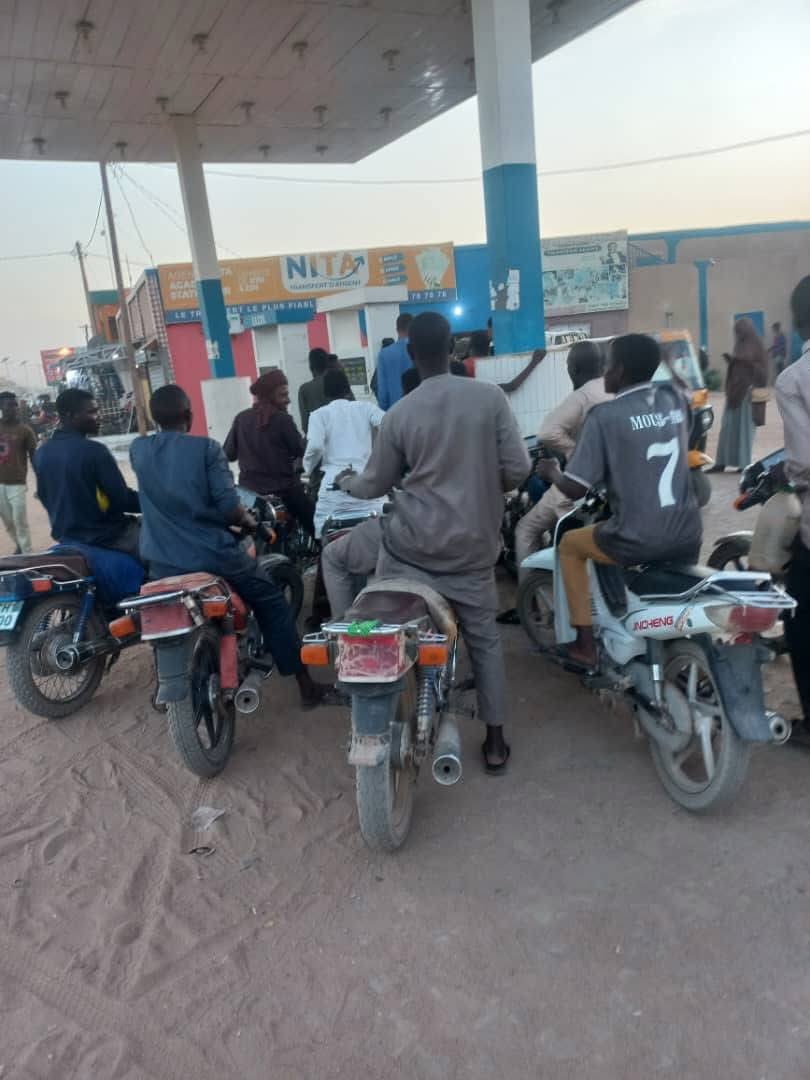By Zagazola Makama
The city of Agadez, capital of the Aïr region in northern Niger Republic, is experiencing a severe fuel crisis, with prices soaring to 2,500 FCFA per liter. The shortage has caused significant disruptions across multiple sectors, affecting transportation, businesses, and daily life.
Reports from Agadez indicate that long queues have formed at the few fueling stations that still have supplies, while black market prices continue to rise. The scarcity has further exacerbated the rising cost of goods and services, putting additional strain on households already grappling with economic difficulties.
The crisis comes amid worsening economic conditions following the military coup led by General Abdourahamane Tiani in July 2023. While the military government has promoted its “refoundation” agenda, aimed at reshaping Niger’s governance and economy, ordinary citizens are yet to see improvements in their living conditions.
Business owners and transport operators in Agadez say they are struggling to stay afloat, as the high cost of fuel is making operations unprofitable. Many have either reduced their services or shut down entirely, further weakening the local economy.
Residents, already facing rising food prices, salary delays, and unemployment, have expressed growing frustration over what they describe as government inaction in addressing the crisis.
Despite the economic hardships, Niger’s oil production has increased significantly since 2024, following the completion of a major pipeline project that allows the country to export five times more crude oil than before. However, many are questioning why the increased oil revenues have not translated into better economic conditions for the people.
Reports suggest that: Civil servants are facing delays in salary payments. Students have not received their scholarships. Pensioners are struggling without their pensions. Public infrastructure projects remain stalled. There is little to no recruitment into public service, worsening unemployment.
Additionally, concerns are growing over bureaucratic corruption, with reports of false stamp duties being imposed on documents, including medical prescriptions and examination fees.
“The government tells us the economy is improving, yet we can’t buy fuel, we can’t pay school fees, and salaries are never on time. Where is the oil money going?” a frustrated civil servant in Agadez said.
The Solidarity and Security Fund (FSSP), initially introduced to support national development and security, has also come under increased scrutiny. Many citizens argue that the fund has heavily taxed workers and businesses without delivering visible benefits.
With the ongoing financial crisis, there are growing fears that the government may attempt to cut workers’ salaries further to sustain the fund, a move many see as unacceptable given the current hardships.
“While ordinary citizens struggle to survive, the CNSP leaders and government officials continue to enjoy their full salaries and privileges. Why should workers’ wages be cut when there’s no transparency on how these funds are spent?” another resident questioned.
Economic analysts warn that if the fuel crisis persists, it could have severe implications for trade and mobility in Agadez, a city that serves as a key transit hub for goods and migration routes in the Sahel.
A prolonged fuel shortage would not only disrupt local businesses and transport services but could also weaken security efforts, as fuel is essential for law enforcement and military patrols in the region, which has long been plagued by insurgent activities.
As frustration mounts, there are increasing calls for the government to take urgent action to resolve the fuel shortage and address broader economic issues.
Citizens are urging the CNSP to provide transparency on oil revenues and implement immediate measures to stabilize the fuel supply.


